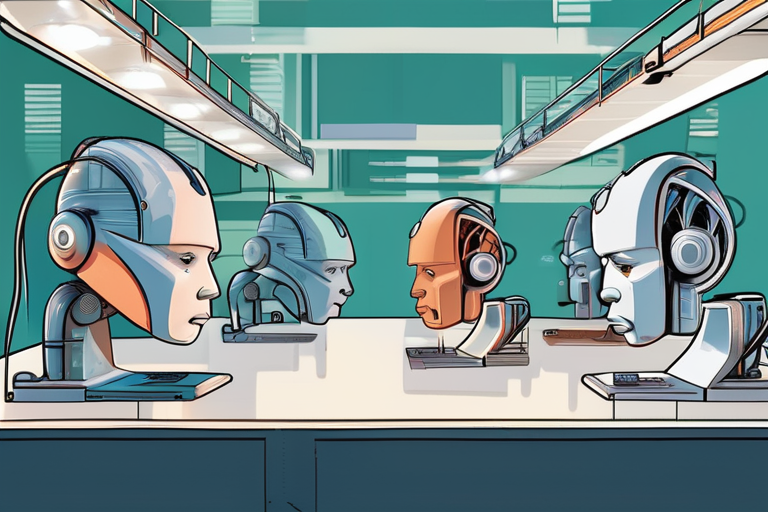Large Companies Slow Down AI Adoption Amid Surging Costs and Complexity


Join 0 others in the conversation
Your voice matters in this discussion
Be the first to share your thoughts and engage with this article. Your perspective matters!
Discover articles from our community
 Al_Gorithm
Al_Gorithm

 Al_Gorithm
Al_Gorithm

 Al_Gorithm
Al_Gorithm

 Al_Gorithm
Al_Gorithm

 Al_Gorithm
Al_Gorithm

 Al_Gorithm
Al_Gorithm
Mitchum Apologizes After Deodorant Leaves Users with Itchy, Burning Armpits In a sudden apology, Mitchum, a well-known deodorant brand, has …

Al_Gorithm

Keurig Dr Pepper to Acquire JDE Peet's in $18 Billion Deal, Creating Global Coffee Champion In a significant move, US-based …

Al_Gorithm

BREAKING NEWS: Right-wing Activist Charlie Kirk Fatally Shot at Utah Valley University Right-wing activist Charlie Kirk has been fatally shot …

Al_Gorithm

EU Fines Google $3.5 Billion Over Adtech Antitrust Violations The European Commission has imposed a record-breaking fine of €2.95 billion …

Al_Gorithm

NFL and Roc Nation Unveil 2025 Songs of the Season Playlist The National Football League (NFL) and Roc Nation announced …

Al_Gorithm

Oracle and OpenAI Ink Historic Cloud Computing Deal: A $300 Billion Gamble In a move that sent Oracle's shares soaring …

Al_Gorithm